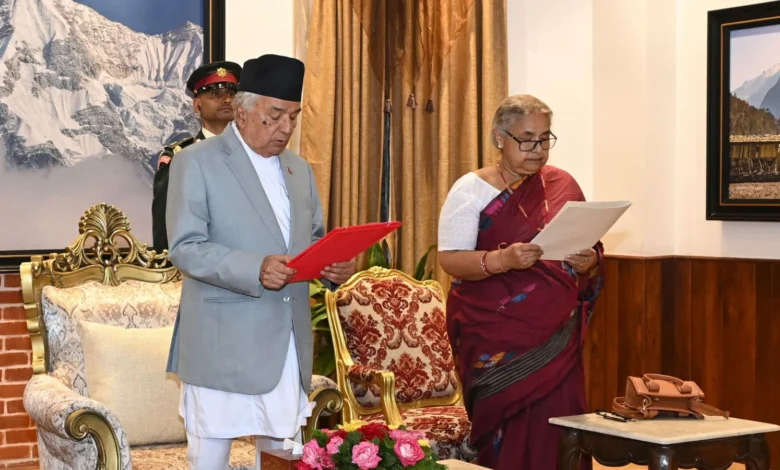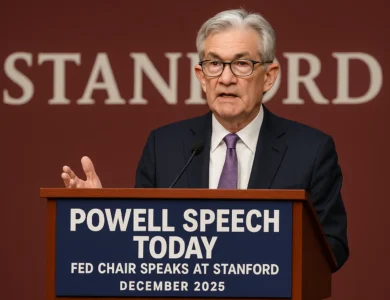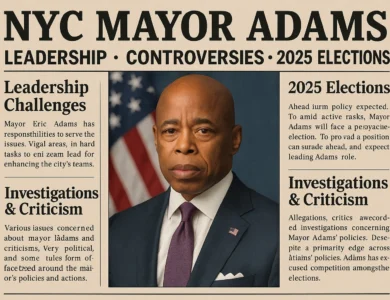
In a groundbreaking development that marks a significant milestone in Nepal’s political history, the Himalayan nation has appointed Sushila Karki as its first female PM amid one of the most severe political crises the country has witnessed in recent decades. The appointment of the 73-year-old former Supreme Court Chief Justice comes as Nepal struggles to restore stability following deadly protests that claimed over 50 lives and forced the resignation of former Prime Minister K.P. Sharma Oli.
This historic appointment represents more than just a change in leadership; it symbolizes a potential turning point for Nepal’s democratic future and women’s representation in South Asian politics. The decision to appoint Karki as interim Prime Minister comes at a critical juncture when the nation desperately needs experienced leadership to navigate through the ongoing political turmoil and address the legitimate concerns of the youth-led anti-corruption movement.
The Nepal political crisis 2025 has its roots in widespread corruption allegations and growing dissatisfaction among the younger generation, particularly targeting what protesters called “Nepo Kids” – children of political elites accused of living lavish lifestyles funded by corrupt practices. The movement, which began as social media demonstrations against the lavish lifestyles of these political offspring, quickly evolved into the deadliest social unrest Nepal has experienced in years.
Background of the Political Crisis
Genesis of the Gen Z Revolution
The current political upheaval in Nepal began as an unprecedented Gen Z uprising that initially focused on social media campaigns but rapidly escalated into nationwide protests. The youth-led anti-corruption protests resulted in a death toll that climbed to over 50 people, with political uncertainty continuing as government buildings across the capital and beyond were set ablaze.
The Nepal corruption protests gained momentum as young citizens expressed frustration with systemic corruption, nepotism, and the disconnect between political elites and ordinary citizens. The movement’s rapid spread demonstrated the power of social media in mobilizing political action and highlighted the growing political consciousness among Nepal’s younger population.
KP Sharma Oli’s Resignation
Former Prime Minister KP Sharma Oli was forced to step down following the intensity of the protests and the government’s inability to contain the growing unrest. The dramatic crisis forced the resignation of Prime Minister KP Sharma Oli and left government buildings in flames across the capital and beyond. His resignation marked the end of yet another short-lived government in Nepal’s notoriously unstable political landscape.
The Oli administration’s fall exemplified the challenges facing Nepal’s political system, where governments frequently change due to coalition politics, corruption scandals, and public dissatisfaction. This instability has long hindered Nepal’s development and democratic consolidation efforts.
Who is Sushila Karki?
Professional Background and Career
Sushila Karki, at 73 years old, brings decades of legal expertise and judicial experience to the Prime Minister’s office. As a former Chief Justice of Nepal, she has established herself as one of the country’s most respected legal minds and has been known for her commitment to judicial independence and anti-corruption efforts.
Her appointment as Nepal’s first First Female PM is particularly significant given her background in the judiciary, which traditionally maintains neutrality in political affairs. This background may prove advantageous in navigating the current crisis, as she is perceived as being above partisan politics and corruption allegations that have plagued other political figures.
Why Karki Was Chosen
The selection of Sushila Karki as interim PM appears to be a strategic decision aimed at restoring public confidence in government institutions. Former chief justice Sushila Karki, 73, was the unlikely choice of the “Gen Z” protesters behind the movement, suggesting that even the youth protesters recognize her integrity and capability to lead during this transitional period.
Her judicial background and reputation for independence make her an ideal candidate to oversee the transition period and potentially implement reforms that address the protesters’ concerns about corruption and governance failures.
Historic Significance of the Appointment
Breaking the Glass Ceiling in Nepal Politics
The appointment of Nepal’s First Female PM represents a monumental breakthrough for women’s political representation in South Asia. This historic milestone demonstrates that even in times of crisis, progress toward gender equality in leadership positions can occur.
Karki’s appointment sets a precedent for future female political leaders in Nepal and sends a powerful message about women’s capabilities in handling complex political situations. Her leadership during this crisis could inspire more women to participate in politics and seek leadership positions.
Impact on South Asian Politics
The events in Nepal are being closely watched by China, India, and Pakistan, highlighting the regional significance of this appointment. Nepal’s political stability is crucial for regional balance, given the country’s strategic location between two major powers, India and China.
The appointment of a female leader during political crisis may influence political discourse in neighboring countries and contribute to broader discussions about women’s leadership in South Asian politics.
Immediate Challenges Facing Karki
Restoring Law and Order
One of the most pressing challenges facing Prime Minister Karki is restoring stability and addressing the ongoing unrest. The death toll from Nepal’s youth-led anti-corruption protests has climbed to 30, with political uncertainty continuing, requiring immediate attention to prevent further violence and loss of life.
The new interim government must balance the need for maintaining law and order while addressing the legitimate grievances that sparked the protests. This delicate balance will test Karki’s leadership skills and her ability to build consensus among different stakeholders.
Addressing Corruption Concerns
The anti-corruption movement that led to this crisis demands concrete action against corrupt practices and greater transparency in government operations. Karki’s administration will need to implement meaningful reforms to demonstrate that the government is serious about tackling corruption.
Her background as a Chief Justice provides her with unique insights into legal frameworks needed to combat corruption effectively. However, translating this knowledge into practical policy reforms while managing a political transition will be challenging.
Economic Recovery and Governance
Beyond addressing immediate security concerns, the Karki government must focus on economic recovery and strengthening governance institutions. The political crisis has disrupted normal government functioning and may have negative impacts on Nepal’s economy and international relations.
Restoring investor confidence, maintaining essential services, and ensuring continuity in governance will require skilled political management and effective communication with various stakeholders.
International Response and Implications
United Nations Support
UN agencies in Nepal welcomed the appointment of Sushila Karki as interim prime minister, indicating international support for this leadership transition. The UN’s positive response suggests confidence in Karki’s ability to lead Nepal through this difficult period.
International support will be crucial for the interim government as it works to stabilize the situation and implement necessary reforms. The UN’s backing may also help legitimize the new government in the eyes of the international community.
Regional Powers’ Reactions
Given Nepal’s strategic importance in South Asia, the reactions of India and China to this appointment will be particularly significant. Both countries have substantial interests in Nepal’s political stability and will likely monitor how the new government manages the crisis.
The appointment of a First Female PM may also influence diplomatic relations, as it demonstrates Nepal’s commitment to progressive leadership during challenging times.
Future Implications and Prospects
Path to Political Stability
The success of Karki’s interim leadership could provide a model for future crisis management in Nepal. Her approach to addressing the concerns of young protesters while maintaining institutional stability will be closely watched by political observers.
If successful, her leadership could contribute to greater political stability and potentially influence future electoral outcomes and coalition formations in Nepal.
Women’s Political Participation
This historic appointment may encourage more women to participate in Nepal’s political processes and seek leadership positions. The success of the First Female PM could help break down traditional barriers and stereotypes about women’s political capabilities.
The appointment during a crisis situation particularly demonstrates that women leaders can handle the most challenging political circumstances, potentially changing public perceptions about female leadership.
Conclusion
The appointment of Sushila Karki as Nepal’s First Female PM represents both a historic milestone and a pragmatic response to an unprecedented political crisis. Her selection during this turbulent period demonstrates the country’s willingness to embrace change and seek experienced leadership to navigate complex challenges.
As Nepal’s political crisis 2025 continues to unfold, Karki’s leadership will be tested by her ability to restore stability, address corruption concerns, and build bridges between different political factions and generations. The success of her interim administration could have lasting implications for Nepal’s democratic development and women’s political participation in South Asia.
The international community’s support for this appointment suggests optimism about Nepal’s ability to overcome its current challenges under new leadership. However, the real test will be whether this historic appointment can translate into meaningful political and social reforms that address the underlying issues that sparked the crisis.
Read More: Powerball Winner Jogger Bear Attack Breaking News and Safety Insights






